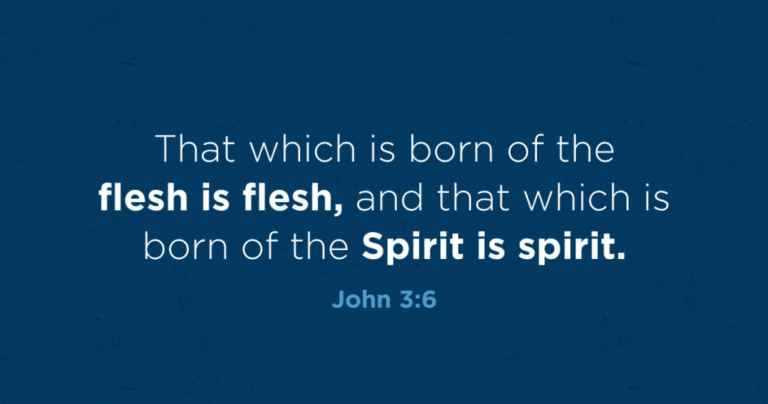What Happens When a Person Gets Saved?

Originally posted on the Bibles for America Blog.
When we repent and receive the Lord Jesus Christ as our Savior, some wonderful things happen to us. We are forgiven of all our sins and delivered from God’s condemnation and eternal punishment. As a result, for the first time in our lives we have untold happiness and peace. We can’t help but love the Lord Jesus who died for us on the cross.
Forgiven, delivered, and born again
Being forgiven by God and delivered from eternal punishment are truly wonderful, yet there’s even more. Perhaps the most amazing thing that happens to us when we believe in the Lord Jesus is that we’re born again, or regenerated.
What do the words born again mean? Some think it’s a figure of speech, like the saying turn over a new leaf, meaning you resolve to be a better person. But it’s more profound than that. According to the Bible, being born again isn’t a metaphor for having a new beginning. It’s an actual spiritual birth: we are reborn with the life of God.
Why do we need to be born again?
Since our sins are forgiven, isn’t that enough? Why do we need to be born again?
We were born with the physical, human life, which we received from our parents. But God wants us to have His divine life in addition to our human life. We are reborn with the divine life of God by believing in Christ.
Regardless of whether we’re a good person living the most moral life, quite the opposite, or somewhere in between, every one of us needs to be reborn spiritually to have the divine life of God.
In John 3:3 the Lord Jesus makes it clear that we all must be born again:
“Unless one is born anew, he cannot see the kingdom of God.”
For His plan to be worked out, God wants us to be people who are not just forgiven and cleansed, but also who possess His divine life.
Two births
This is why God created us as vessels to contain Him. Specifically, He made us with a human spirit, the deepest part of our being, which is able to contact, receive, and contain God.
The Lord Jesus said in John 3:6, “That which is born of the flesh is flesh, and that which is born of the Spirit is spirit.” “Born of the flesh” refers to our physical birth, and “born of the Spirit” refers to our spiritual birth.
“The Spirit” is the Spirit of God, and “spirit” refers to our human spirit. When we believe in Jesus Christ, our human spirit is born of the Spirit with the divine life of God.
How can this be possible?
God is holy and righteous. How can He give His eternal, divine life to sinful human beings? Because of Christ’s death on the cross, God can forgive and thoroughly cleanse all who repent and believe in Him. Then the holy and righteous God can come into our spirit and beget us with His life.
We need to realize that God’s forgiving us, cleansing us, and delivering us from eternal punishment is so that we can have His eternal life.
To illustrate, let’s say we want to pour delicious juice into a cup. But there’s a problem—the cup is filthy. We first have to wash the cup; then we can fill it with juice.
Similarly, God wants to fill us with Himself as the divine life, but first we sinners need to be cleansed with the blood of Jesus. Once we believe and are cleansed, the divine life can enter into us with no obstacle.
A hymn by Charles Wesley beautifully speaks of what the Lord Jesus did for us so we could be born again. Here are a few lines:
“Mild He lays his glory by,
Born that man no more may die;
Born to raise the sons of earth;
Born to give them second birth.”
Being reborn makes us God’s children
Just as being born of our parents physically makes us their child, being born of God spiritually makes us a child of God.
John 1:12-13 tells us this fact:
“As many as received Him [Jesus Christ], to them He gave the authority to become children of God, to those who believe into His name, who were begotten not of blood, nor of the will of the flesh, nor of the will of man, but of God.”
Isn’t it amazing that we human beings can have God’s divine life and be His children? What wonderful things happened to us when we were saved!
For all eternity we’ll thank the Lord Jesus for dying on the cross for us so we could be forgiven and cleansed of our sins. We’re so thankful we’re no longer under God’s condemnation, headed for eternal punishment. But we also thank God that His salvation goes even further. We were born of the Spirit in our spirit! We have the life of God!
We can echo the apostle Peter’s praise to God in 1 Peter 1:3:
“Blessed be the God and Father of our Lord Jesus Christ, who according to His great mercy has regenerated us unto a living hope through the resurrection of Jesus Christ from the dead.”
For more on this subject, you can read chapter 1 of Basic Elements of the Christian Life, vol. 1, a book that has helped thousands of believers. If you’re an Australian resident, you can order the three-volume set for free here. You can also download these volumes from anywhere in the world here.
Subscribe to receive the latest posts






